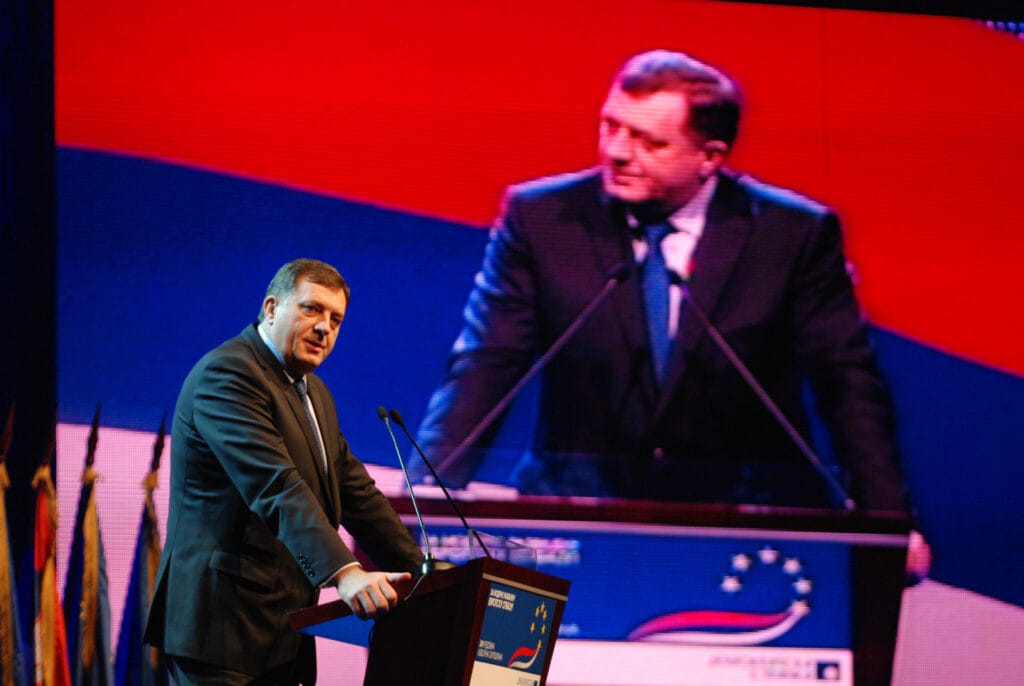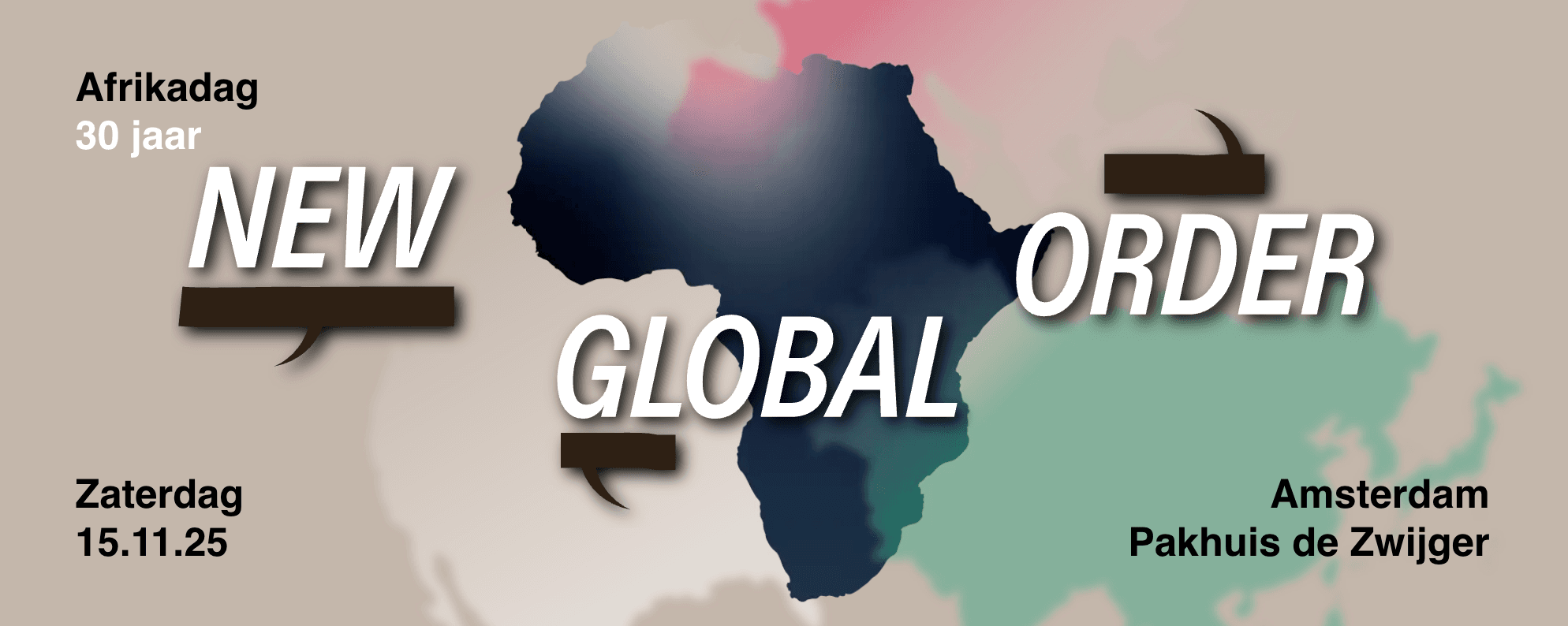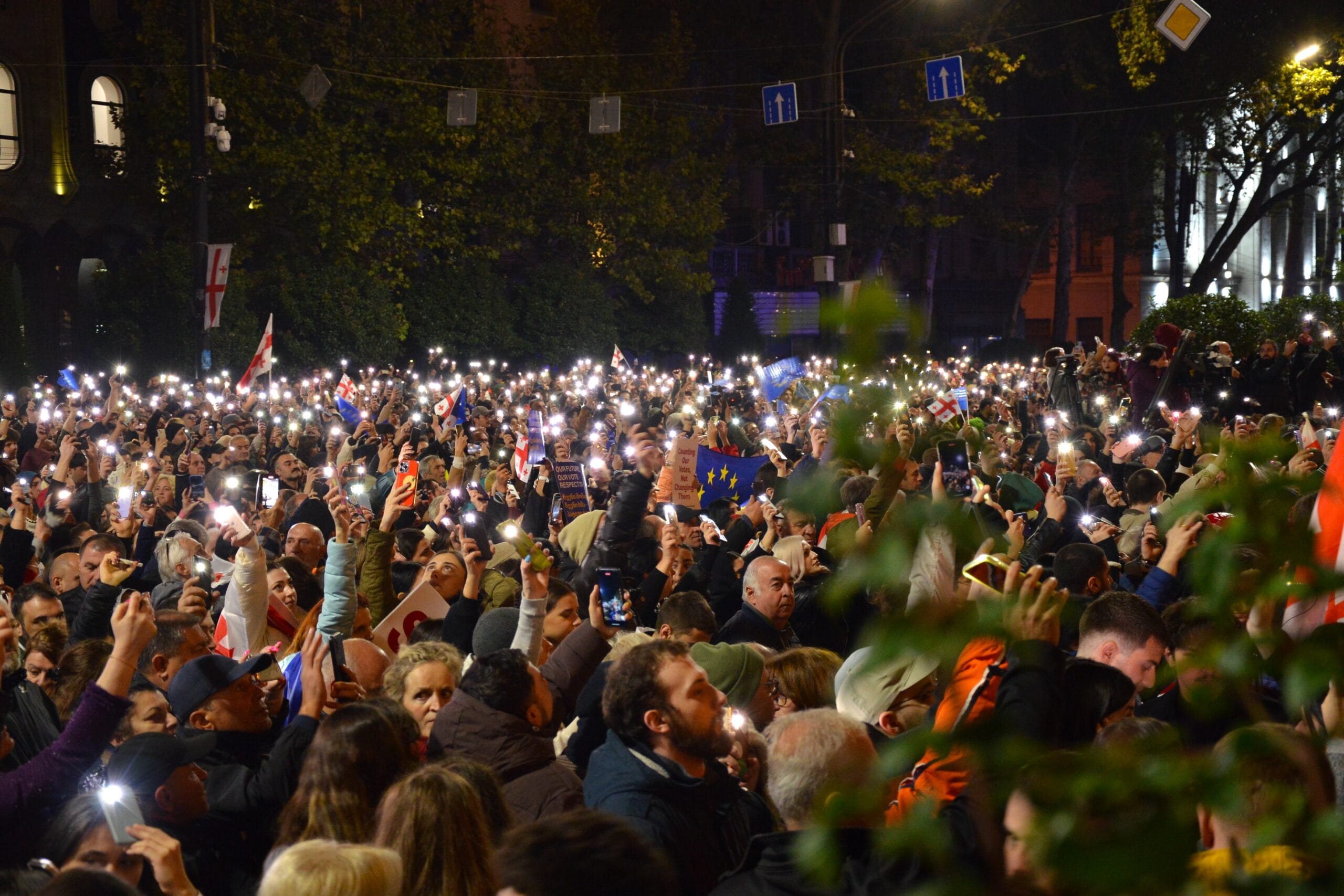Source: Wikimedia Commons
On 25 October, citizens of Republika Srpska (RS), one of the two entities that make up Bosnia and Herzegovina (BiH), will go to the polls for an unconstitutional referendum. The question they will be asked is strikingly worded:
"Do you accept the decisions of unelected foreigner Christian Schmidt and the unconstitutional rulings of the BiH Court against the President of Republika Srpska, as well as the CEC's decision to revoke the mandate of Republika Srpska President Milorad Dodik?"
The wording leaves little doubt about the intended outcome. But behind the populist theatre lies a deeper constitutional and political crisis. The referendum is the latest step in Milorad Dodik's struggle to remain relevant after Bosnia's state institutions stripped him of his mandate. Although the referendum has no legal implications at the state level, the consequences for Bosnia's fragile constitutional order, its European path and regional stability could be significant.
The court ruling and the CEC's decision
The series of events began in July 2023, when Dodik openly rebelled against the decrees of Bosnia's international High Representative Christian Schmidt. The High Representative has extraordinary powers, known as the "Bonn Powers", to make it Dayton peace accord which ended the war in Bosnia in 1995, to maintain. Dodik not only refused to implement Schmidt's decisions, but also encouraged separatist moves by Republika Srpska institutions.
In February 2025, Bosnia's first-instance court sentenced Dodik to one year in prison, later commuted to a fine, and banned him from holding public office for six years. In August, the board of appeal the verdict. The Central Electoral Commission (CEC) then implemented the ban by stripping Dodik of his mandate as RS president. This was a rare case where state institutions legally held a powerful leader accountable.
The consequences should have been clear: Dodik could no longer serve as president and the RS should have called early elections. Instead, the RS National Assembly rejected the state-level rulings, blocked the holding of early elections and voted to hold a referendum on whether to accept the decisions. In other words, a court ruling and an administrative enforcement measure were turned into an issue for a popular vote.
The referendum as a bargaining tool
For Dodik, the referendum is not about giving citizens a say on judicial legitimacy. As Harun Cero, programme manager for democratisation and security at the Friedrich Ebert Stiftung in Sarajevo, explained, it is less a democratic exercise than "a bargaining chip", a tool designed to force concessions in exchange for blowing them off. This reflects a long-standing pattern: Dodik pushes for entity-level laws on intelligence services, courts or agencies of Republika Srpska, only to back down when resistance increases.
The wording of the referendum itself illustrates the problem. By calling Schmidt an "unelected foreigner" and Bosnia's courts "unconstitutional", it undermines the entire structure of post-Dayton governance. Direct democracy does not become a means of strengthening legitimacy, but of eroding it. International recognition of such a vote is unlikely. Only Russia and perhaps China could support it, while Dodik has already received rhetorical support from Serbian President Vučić and Hungarian Prime Minister Orbán. Most other countries, as well as the EU, will condemn it as illegal. Yet Dodik does not need recognition abroad. His goal is to use the referendum as leverage: if it passes, he can claim legitimacy with the people against Sarajevo; if it is cancelled in exchange for concessions, he can present himself as a defender of RS interests.
Elections and what comes after
This strategy also explains his attempts to block early presidential elections. Following Dodik's disqualification, the Central Electoral Commission scheduled elections for 23 November of this year. These elections are crucial because they will determine not only his successor, but also whether state-level pronouncements will be implemented in practice. By refusing to organise them, the RS authorities are suspending the core mechanism of democratic accountability and replacing it with a plebiscite on one man's beliefs. As Cero warned, "He will do everything possible to block the elections", but his horizon is getting narrower: "I don't think he will last beyond the end of the year... there are too many things that speak against him at the moment."
Much will depend on the interaction between Dodik, Republika Srpska opposition members and international actors. Cero stressed the importance of the "shuttle diplomacy" currently taking place, both within Bosnia and between Sarajevo's foreign partners. Meanwhile, the Bosnian group in the Council of Peoples of Republika Srpska has initiated proceedings of vital national interest brought before the Constitutional Court, challenging both the referendum law and the decision to call the vote. The court is expected to rule within a month, underlining that Dodik's strategy is controversial even within Republika Srpska.
International interests
For the international community, more than one leader is at stake. Allowing a convicted politician to reverse court rulings through popular consultations would further undermine Bosnia's fragile rule of law. The OHR, already weakened by years of selective interventions, risks losing its legitimacy entirely. EU accession, which formally started for Bosnia in 2022, becomes more difficult to imagine if entity leaders can openly defy state institutions without consequences.
There are also direct geopolitical dimensions. In November, the UN Security Council will decide on extending the mandate of EUFOR/Althea, the international military mission in Bosnia. Russia has previously threatened to block this, and the Dodik crisis provides Moscow with an additional bargaining chip. Western actors must decide whether to let the Dodik referendum pass as political theatre or to draw a clear line and indicate that decisions by state courts are not up for debate.
Conclusion
The referendum in Republika Srpska will not change Dodik's legal status: his conviction stands and his ban from office remains in place. What it will do, however, is give him a platform. By dismissing court rulings as illegal and making them a matter of popular vote, Dodik presents himself as RS's defender against external scrutiny. This may buy him time, but it also pushes Bosnia further into a cycle in which court rulings become political bargaining tools.
For Bosnia, the danger is not that Dodik will undo the court's ruling through this referendum - he cannot do that. The danger is that state institutions are increasingly weakened every time their rulings are presented as negotiable. The task for the EU and the US is therefore not to debate the validity of the referendum, but to insist that court rulings and electoral bodies remain outside the negotiation process.
Dodik's leeway is narrowing and his time is running out. Whether that prediction comes true or not, the referendum reveals the logic of his politics. It is not about law, or even sovereignty. It is about survival through escalation. The question now is whether Bosnia's partners will allow that logic to determine the country's future, or whether they will insist that the rules of the game are non-negotiable.
For more background on the situation in Bosnia and Herzegovina, please visit this article consult.




